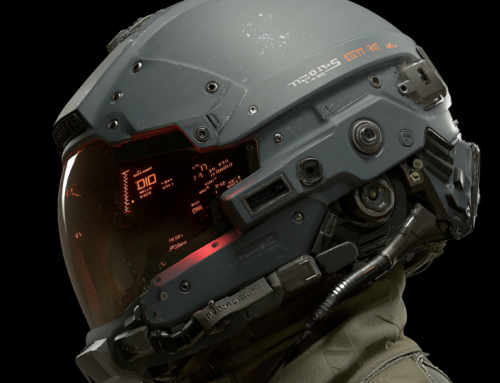
HTC has launched the VIVE Eagle, a 49-gram AI headset powered by GPT and Gemini, emphasizing privacy-focused local processing as it rekindles its rivalry with Meta in the competitive smart glasses market. (Source: Image by RR)
Device Features GPT and Gemini AI for Translations and Voice Assistance
HTC has unveiled the VIVE Eagle, an ultra-lightweight AI headset weighing under 49 grams and now available in Taiwan. The device features a 12-megapixel wide-angle camera, integrated speakers, and an AI voice assistant powered by both OpenAI’s GPT models and Google Gemini, though HTC hasn’t specified which versions are used. The headset allows users to request translations in 13 languages, set reminders, take notes, or receive local recommendations through voice commands. HTC labels GPT access as “beta” and emphasizes that data is processed locally on the device, with anonymized requests sent externally. The VIVE Eagle offers up to 4.5 hours of music playback, 36 hours of standby, and supports magnetic fast charging, priced at about $520 with Zeiss solar lenses in four color options.
The device’s design places strong emphasis on privacy, incorporating an LED indicator that signals when recording is active and automatically stopping recording when removed or covered. HTC positions this approach as a clear contrast to rival Meta, whose smart glasses store voice recordings by default for AI training and offer limited options for disabling this feature. By focusing on user control and local processing, HTC, as noted in wired.com, aims to appeal to privacy-conscious consumers as AI-powered wearables proliferate.
The VIVE Eagle’s launch reopens an old rivalry between HTC and Meta, which previously clashed in the VR market with Vive and Oculus headsets. Now the competition extends into AI-powered smart glasses, where Meta has an early advantage with its Ray-Ban Meta Smart Glasses that provide real-time translation, city guides, QR code scanning, and built-in Meta AI. Meta’s pipeline also includes advanced research projects like Aria Gen 2 and Orion AR prototypes, which showcase multimodal interaction, real-time perception, and high-resolution AR capabilities. Against this backdrop, HTC’s more focused offering could find a niche by differentiating on privacy and lightweight design.
Still, Meta’s scale and vertical integration may present an obstacle. With its ability to run proprietary AI models directly on hardware, Meta could potentially cut product costs while expanding functionality. HTC, by contrast, relies on third-party AI providers, and its VIVE Eagle is available only in Taiwan for now, limiting its global reach. As both companies expand their wearable AI strategies, the market will likely hinge on a balance between functionality, cost, and user trust—particularly around how sensitive personal data such as voice and video recordings are handled. For HTC, the VIVE Eagle represents a significant step back into the consumer spotlight, with privacy as its main selling point.
read more at the-decoder.com







Leave A Comment